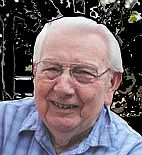 April 1, 2016 (Friday)
April 1, 2016 (Friday)
First words from the moon: “That’s one small step for man, one giant leap for mankind.” Neil Armstrong insisted that he said, “a man.” Obviously, the statement by Neil Armstrong as he walked on the moon in 1969 was planned by the astronaut and was carefully phrased. We have a problem, however, because the audio records don’t seem to back up Armstrong’s version of what he said. One theory holds that the dialect of the region of Ohio where Neil Armstrong lived caused us to misunderstand him. He was adamant that his statement was, “That’s one small step for a man, one giant leap for mankind.” He was irritated for the rest of his life that, from his point of view, the quotation most remembered by the world was not what he said.
Have you ever been misquoted? Or have people misinterpreted what you said? The situation can be very frustrating. This reminds me of a statement attributed to Alan Greenspan that goes like this: “I know you think you understand what you thought I said but I’m not sure you realize that what you heard is not what I meant”
Misunderstanding what another person says is a common error, but intentionally misrepresenting what that person says is cruel and devious. Quoting words out of context can be a sadistic act that makes it sound like someone said something that they did not say.
And what about those of us who hear the quotation? If we repeat those words without verification, we are sinning against God.
Rotarians have developed a sensible and dignified way to live:

These ideals are consistent with Biblical teaching and the Christian way of life.
The final verse of a children’s Bible song goads us into speaking good things:
O be careful little mouth what you say
There’s a Father up above
And He’s looking down in love
So, be careful little mouth what you say.
